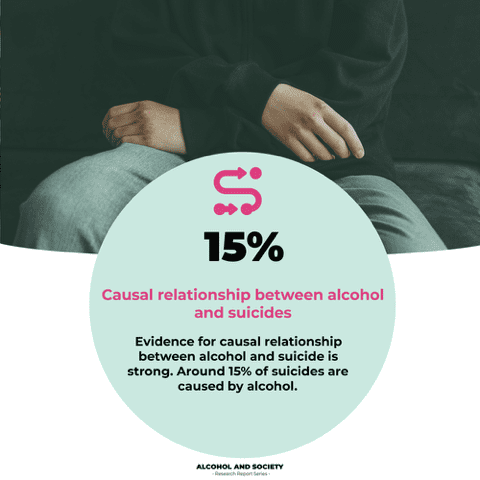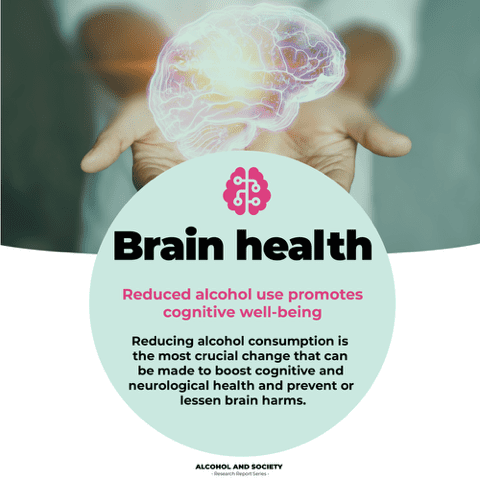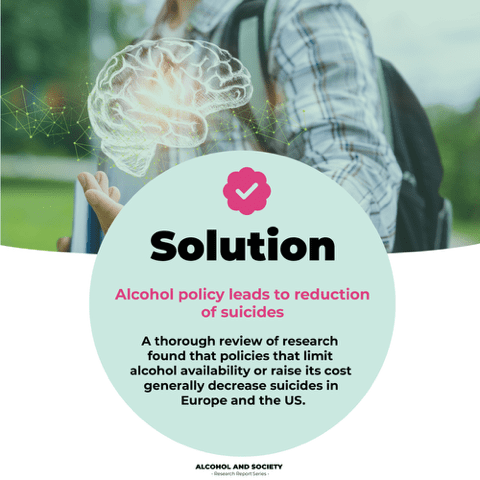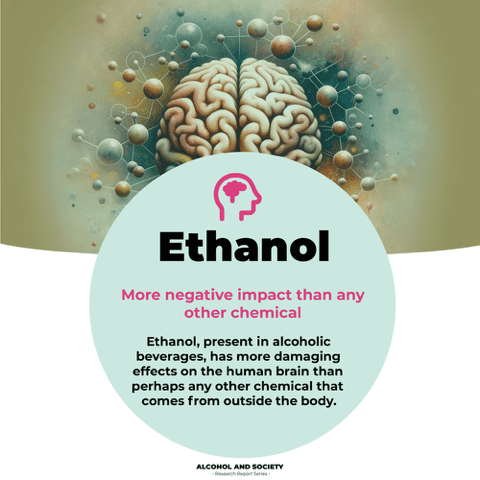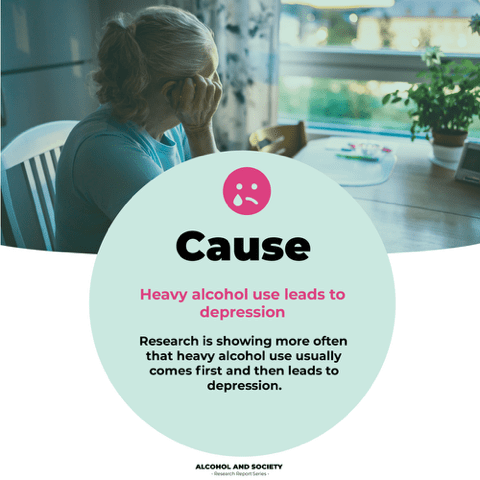Alcohol is a risk factor for several brain disorders and is tightly coupled with mental illness. These are findings in the new research report “Alcohol and the Brain”, compiled by an international research group. On the 22 February, the report will be launched in the European Parliament, in an event hosted by MEP Malin Björk, IOGT-NTO and the European Brain Council.
The research report “Alcohol and the Brain” is a new and unique compilation of research on how alcohol affects the human brain throughout the life course. “Overall, it shows that brain health benefits from avoiding alcohol. This applies both to occasional drinking as well as to intensive or regular consumption over time”, says Sven Andréasson, Chief Physician, Professor Emeritus of Social Medicine, and one of the report’s authors.
Alcohol increases the risk of mental illness
Recent studies show that mental illness can both be caused by and cause alcohol problems. Alcohol increases the risk of anxiety, depression, addiction, and suicide. For people with mental illness and heavy drinking, reduced consumption is found to have positive health effects. Alcohol can reduce anxiety in the short term, but increases anxiety in the long term.
A contributing factor to suicide
There is a strong causal relationship between alcohol and suicide. Around 15% of all suicides globally are estimated to be caused by alcohol. A pooled analysis presented in the report also shows that the risk of suicide is greatly increased for alcohol users, compared to non-users. Restrictive alcohol policies, aimed at entire populations, have been shown to reduce the number of suicides.
How alcohol affects your brain
The report highlights that alcohol affects all brain functions and that it impairs, for example, memory and intellectual ability. In addition, alcohol increases the risk of several brain diseases and injuries, for example fetal alcohol syndrome, accidents, stroke, and dementia. Reducing or avoiding alcohol intake is an important factor in preserving brain health. To get there, alcohol policy measures are required to reduce alcohol’s contribution to neurological, cognitive and psychiatric problems at the population level.
MEP Malin Björk – Preventative, political policies are needed:
“I am glad to co-host the launch of this report, as much can be done across the EU in this area of preventative health policy. By highlighting alcohol’s adverse effects on brain health, I hope good public policy can lead the way for responsible marketing, labelling and sale of alcohol.”
– Malin Björk, MEP (the Left), Sweden
The European Brain Council – Addressing modifiable risk factors is pivotal
“Alcohol consumption and alcohol addictions can lead to brain damage, sometimes irreversible (poor mental health, depression, anxiety, psychosis, suicide, stroke-related harm, to name a few).
Preserving the individual’s brain health and brain capital through the life-span, from pre-conception to adulthood, is a pre-requisite for the achievement of each individual’s full potential.
Alcohol consumption is a risk factor for a number of brain conditions, neurological and mental alike. Addressing the modifiable risk factors leading to brain conditions is pivotal to foster the individual’s creativity, well-being and productivity and will lead to positive social and economic outcomes.”
– Frédéric Destrebecq, Executive Director, the European Brain Council
IOGT-NTO – Alcohol policies should aim to reduce consumption at a societal level
“With this report, we are pleased to raise awareness about the harmful effects of alcohol on brain health. We now call upon the European policy-makers to use this resource, along with good practices shared during the launch, as the foundation for evidence-based policies. We thus hope that this will be a means to protect future generations throughout the EU from alcohol-related harms”.
– Rebecka Öberg, European Policy Officer, IOGT-NTO
The research team behind the report consists of:
· Sven Andreasson, Karolinska Institutet, Department of Global Public Health, Stockholm, Sweden,
· Frida Dangardt The Sahlgrenska Academy at the University of Gothenburg, Queen Silvia Children’s Hospital, Child Physiology, Gothenburg, Sweden,
· Tanya Chikritzhs Curtin University, National Drug Research Institute, Perth, Australia,
· Tim Stockwell Canadian Institute for Substance Use Research, University of Victoria, BC,
· Timothy Naimi Canadian Institute for Substance Use Research, University of Victoria, BC, Canada.
· Harold Holder Senior Scientist Emeritus and previously Senior Research Scientist of the Prevention Research Center, Pacific Institute for Research and Evaluation, Berkely, CA, USA



